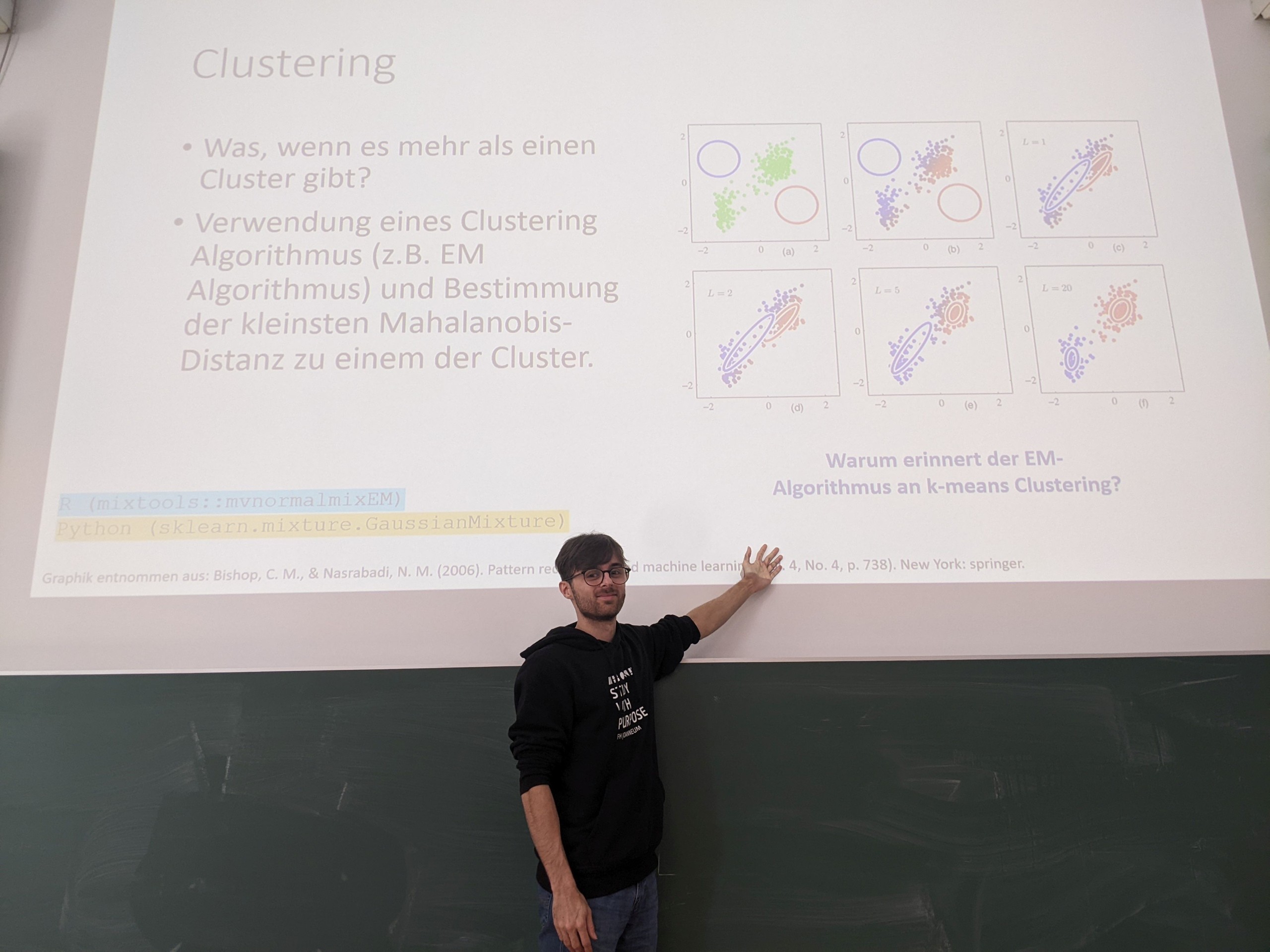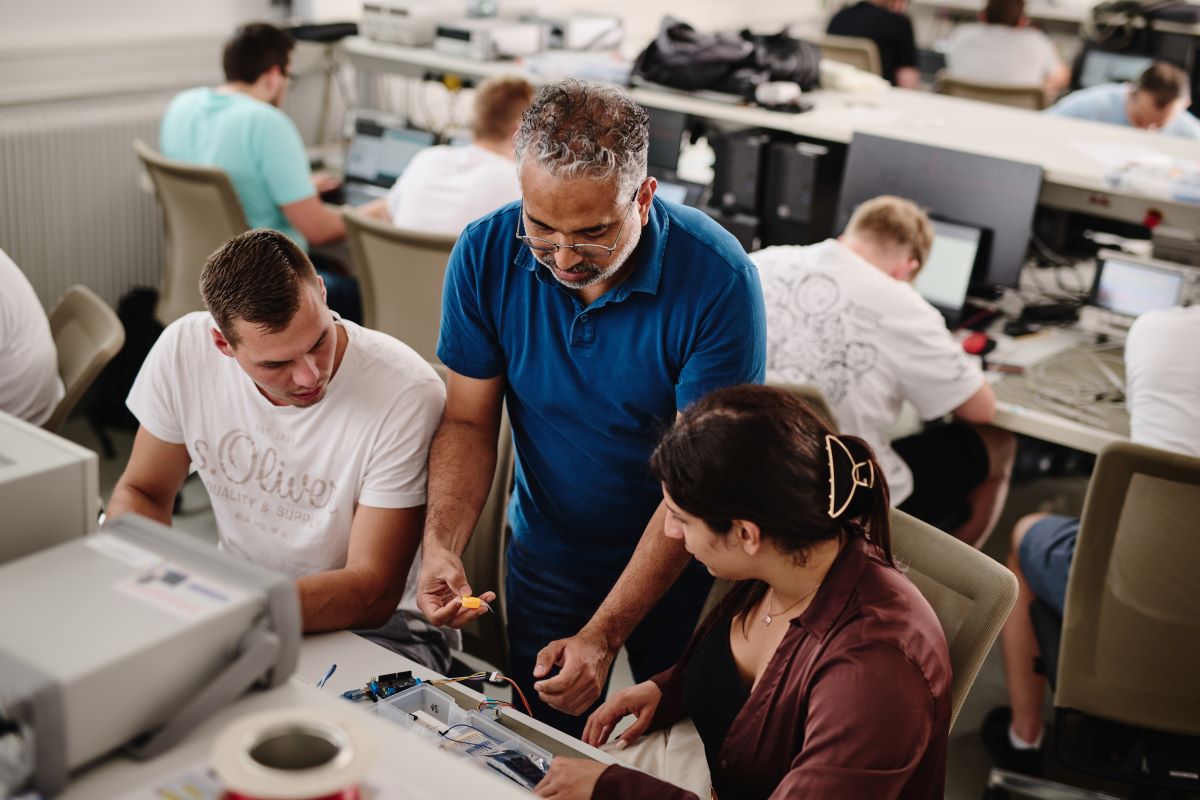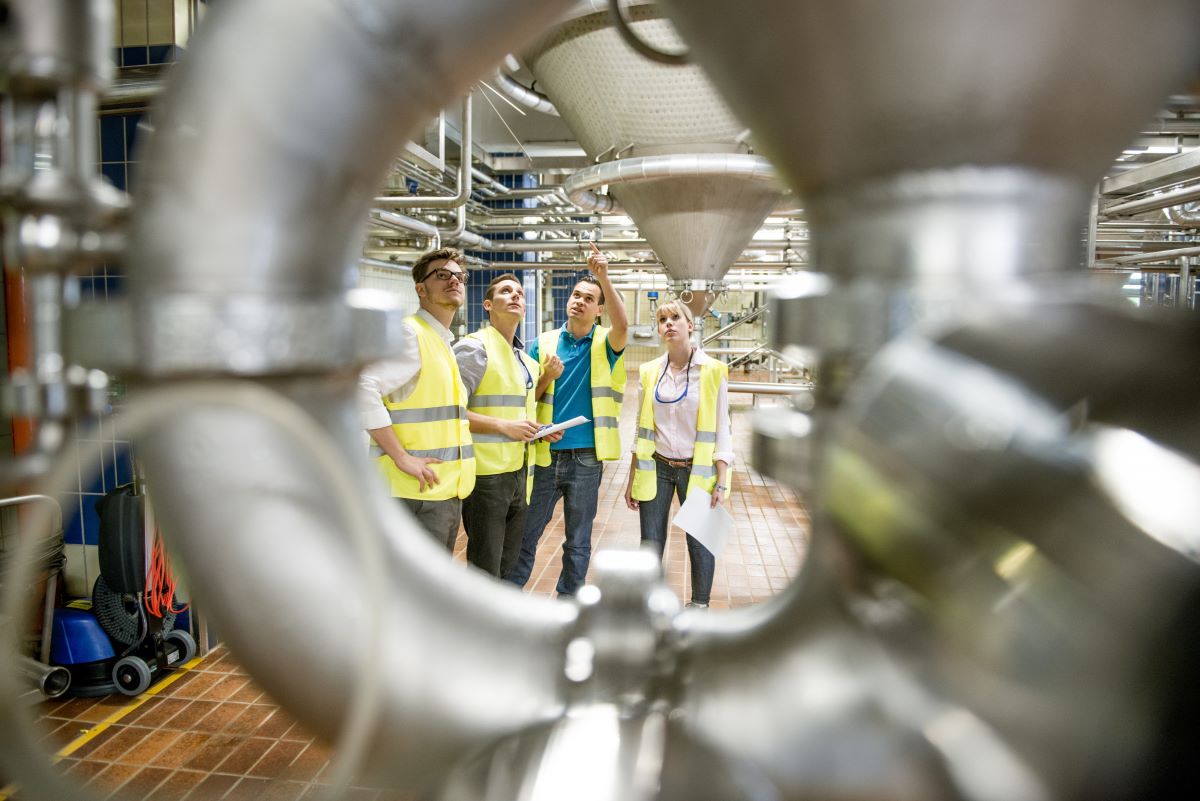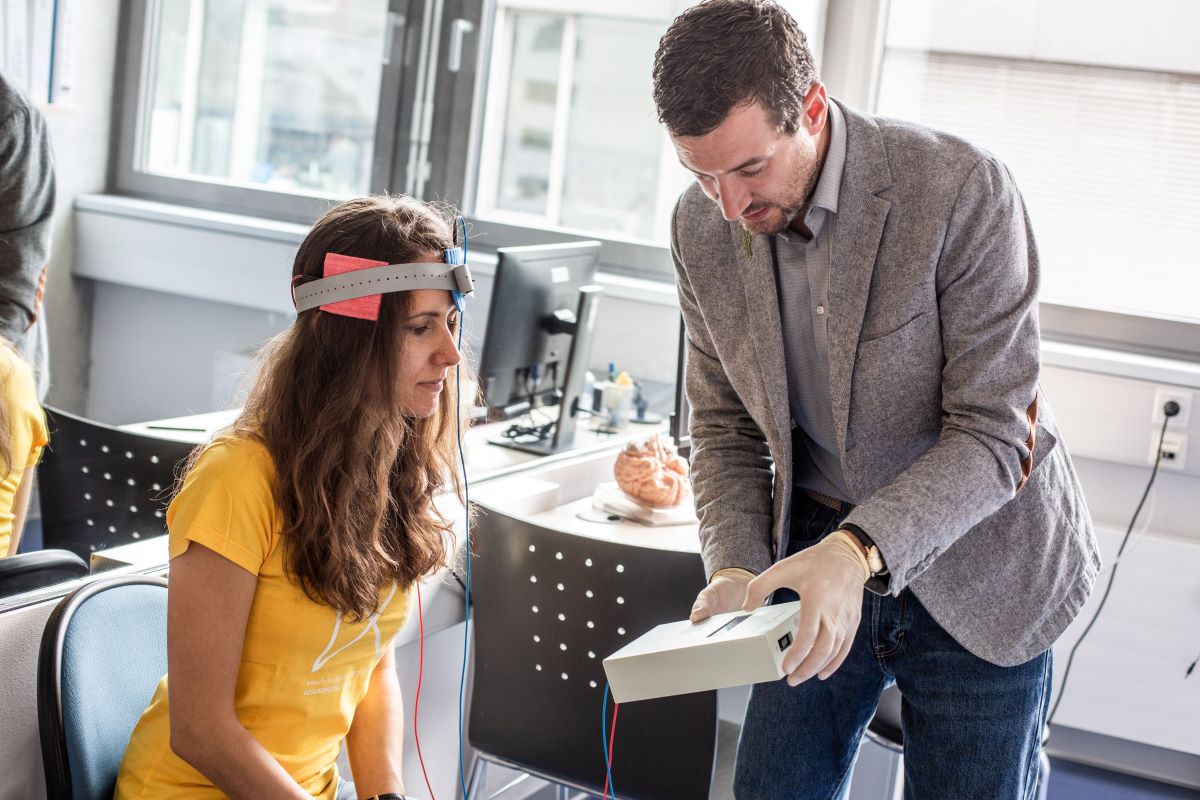Raphaele Raab is a research assistant at the Institute of Information Systems & Data Science and is involved in teaching and research. His motivation for teaching lies above all in being able to present complex issues as clearly as possible and also vividly using practical examples. In this Science Story, he takes a look at how AI and digitalization are transforming regional SMEs.
Science Story: Shaping the digital future
Mag.phil. Raphaele Raab, 18. April 2024
Digitalization and artificial intelligence (AI) are two terms that are omnipresent in today’s business world. In the course of digitalization processes, analogue processes and information are converted into digital formats, making work processes more efficient. The use of AI in turn requires a certain degree of digitalization. Artificial intelligence refers to the ability of machines and computer systems to perform tasks that normally require human intelligence, such as recognizing objects in images or generating texts. Outsourcing such tasks to “artificial intelligence” enables an increase in efficiency that allows smaller companies in particular to remain competitive. The core of this increase in efficiency lies in the automated analysis of large volumes of data of the highest possible quality.
AI in everyday life 🤖
AI processes are used in almost all areas of everyday life where large amounts of data are relevant. AI is a particularly interdisciplinary field of research in which the experts for the data or the specialist discipline work together with the experts for the AI processes.
AI in agriculture 🌱
AI is used in agriculture, for example. The use of AI-controlled sensors and analysis tools allows small farms to optimize their harvests. Specifically, the collected sensor data and additional weather data can be used to make predictions about water and fertilizer requirements for the respective times of day or days. These predictions enable automated irrigation and fertilizer application without the need for human intervention.
AI in retail 🛍️
AI can also provide personalized customer service in retail. In addition to the use of AI chatbots based on language models such as ChatGPT, small retailers can also use AI-based data analysis to better understand their customers’ purchasing behavior. On this basis, they can automatically make personalized offers and recommendations to increase customer satisfaction and boost sales. These personalized offers and recommendations are based, among other things, on finding similar customer profiles. The assumption is that people who have bought similar things in the past will also buy similar things in the future. The definition of similarity also depends on the industry in question.
AI in medicine 🩺
AI can also help to treat patients more efficiently. In small healthcare facilities in particular, it can be especially helpful to use AI processes to support the analysis of medical image data such as X-ray images or MRI scans. For example, the images can already be divided into groups (e.g. healthy tissue, benign tumor, malignant tumor) using artificial neural networks. This preliminary analysis can enable the attending physician to make faster diagnoses, which in turn creates more scope for even more personalized patient care.
AI at FH JOANNEUM 🎓
The training of specialists by Styrian universities is essential to ensure that this know-how reaches Styrian companies. As an applied university, FH JOANNEUM has a special role to play here due to the interdisciplinary nature of AI. Numerous practice-oriented projects and collaborations in the field of AI promote the transfer of knowledge to companies and also offer the opportunity to gain knowledge about the challenges and needs of companies in the field of AI. The topic of AI is firmly anchored in teaching at FH JOANNEUM, especially, but not only, with the Master’s degree course in Data Science and Artificial Intelligence. Even though FH JOANNEUM focuses on educating students, it also invests in the further training of employees of Styrian SMEs in the field of AI. One example of this is the Digital Innovation Hub South project, which works with smaller companies to promote their digital transformation through workshops and small-scale projects.
Digitalization and the use of artificial intelligence are essential for Styrian companies to remain competitive. AI can be used wherever large and high-quality volumes of data are available. The combination of domain knowledge about data with AI processes holds enormous potential for innovation, which will help to strengthen the Styrian economy. The Styrian higher education landscape supports the realization of this innovation potential with a comprehensive range of training courses to provide the specialists of the future.










